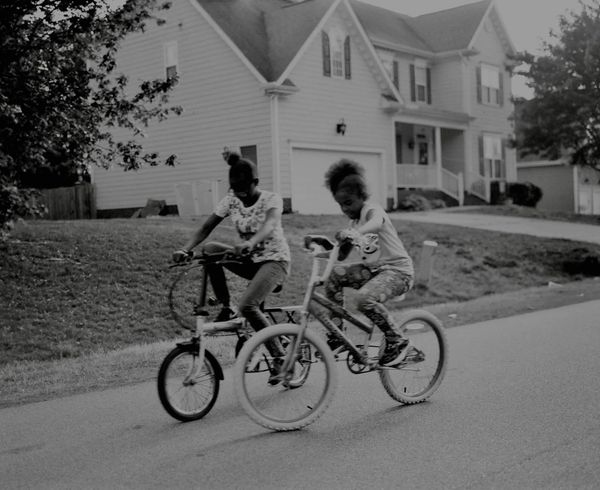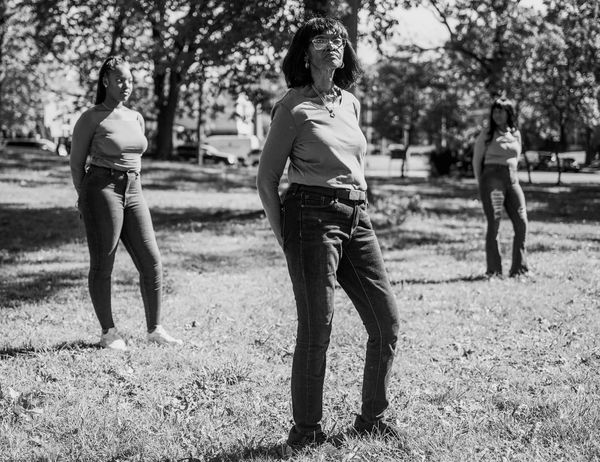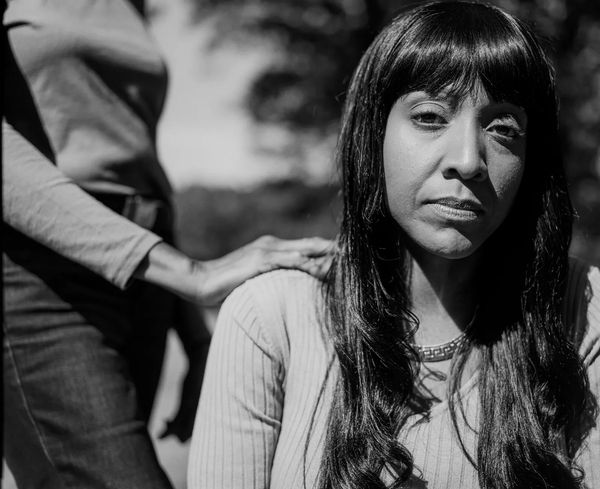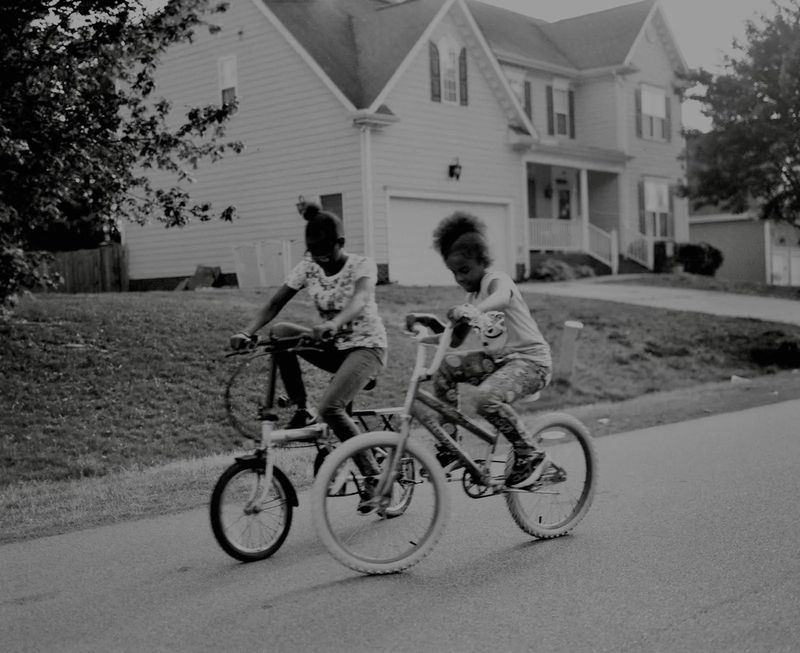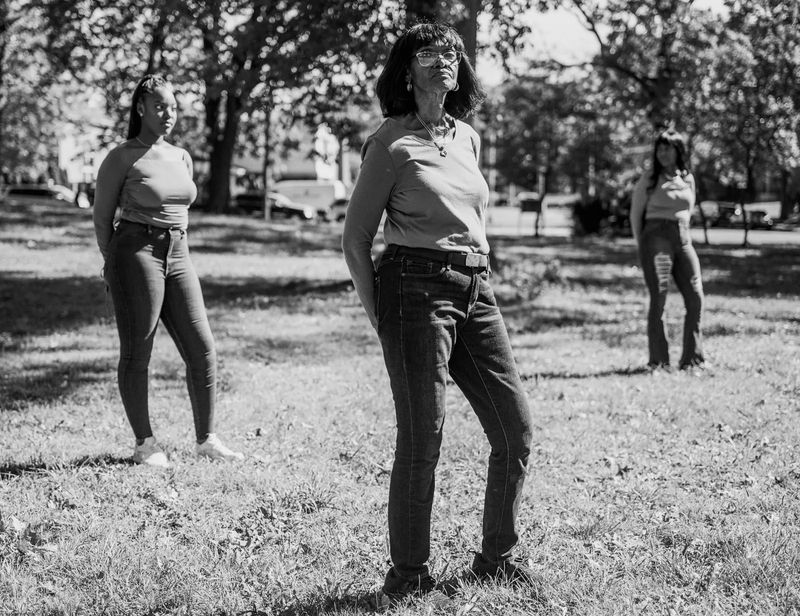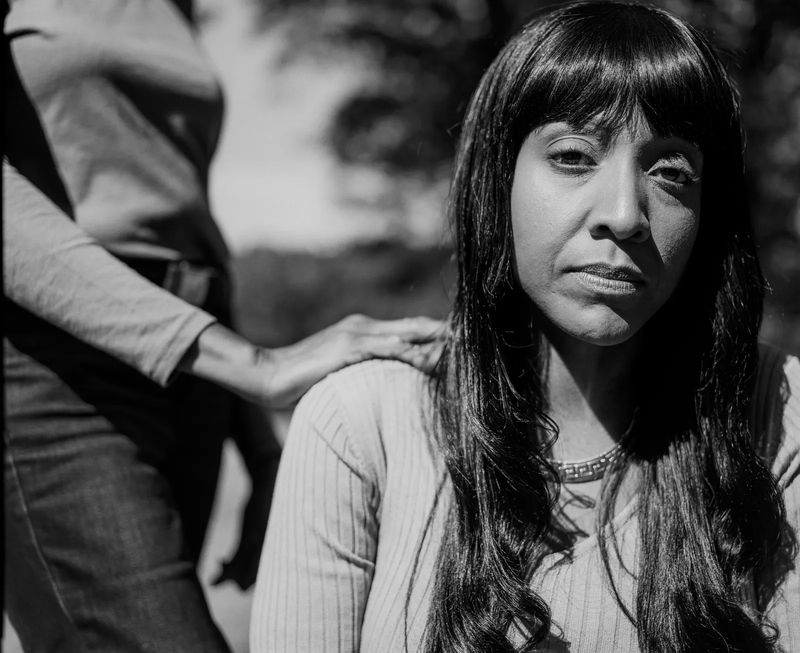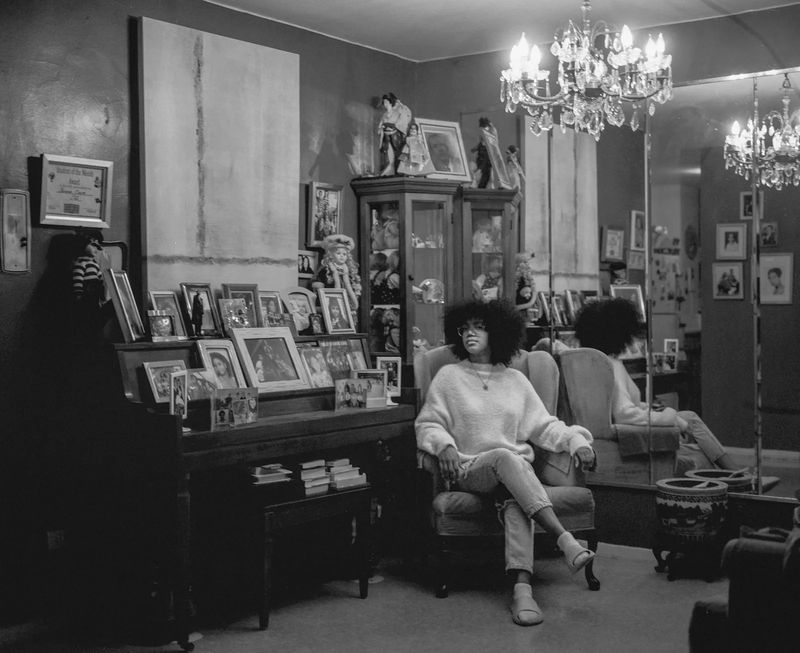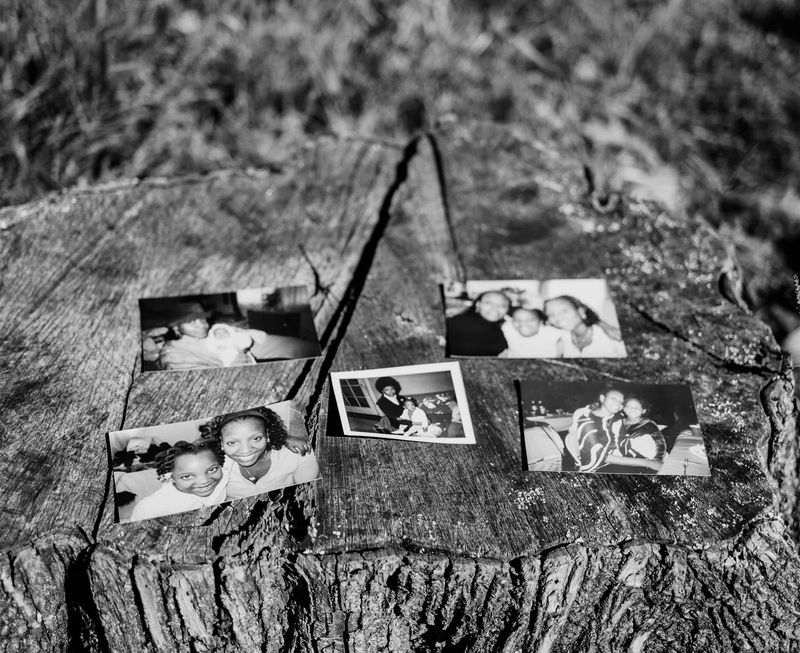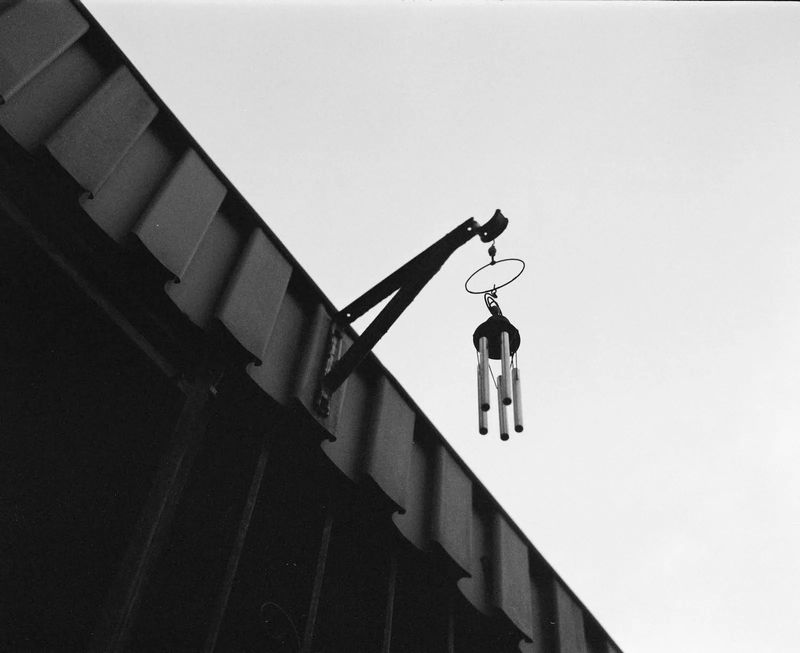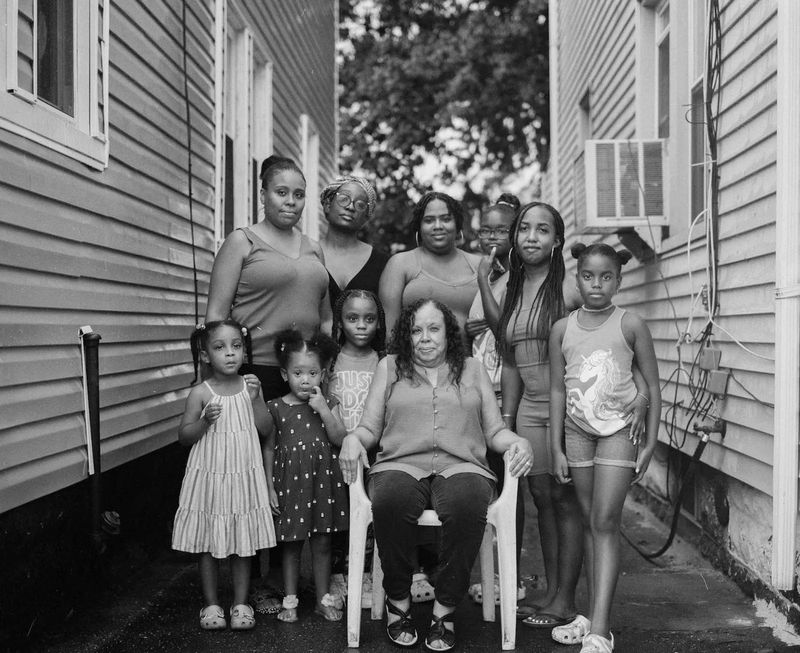Laila Annmarie Stevens Reflects on the Legacy of Black Women and Black Communities
-
Published16 Mar 2023
-
Author
- Topics Documentary
Stevens' Clayton Sisterhood Project series commemorates the bonds and history of Black communities by documenting generations of Black women.
Laila Annmarie Stevens’s photo series, Clayton Sisterhood Project, documents the generations of Black women that compose her large family. Yet, more broadly, Stevens also opens up to reflect and commemorate the continuing legacy of African America women predecessors, encouraging and driving future generations to recognize and remember that history. As Stevens writes, “in the face of each woman in this series” we can find a glimpse of our collective future—the future of Black communities. “Black women, Black motherhood, and Black ancestry are the beautifully indestructible roots to who we are in our Black communities today.”
A large portion of Stevens’ work is linked to her upbringings, specifically the social justice girls advocacy programs she attended as a teenager, which relate to the core of her work. More privately, Stevens also explores the themes of more intimate family dynamics, delving into her immediate circle of siblings, families, friends and their families as well.
Stevens began observing and reflecting about the actual activities and communal moments that manifested as she witnessed them visually: Her nieces playing together outside, biking in the streets; her sisters hugging or cooking together; her friends connecting with their own relatives—observing these moments of closeness and unity, exploring how those physical events could translate into a feeling. “If I can capture that in a photograph, how these moments collage together, [that] could speak to these larger themes” that interested her.
Stevens started to experiment with stage documentary and portraiture, aiming to be more purposeful with photography, a blend of intentionality and attention that organically combines with more natural moments.
She began Clayton Sisterhood Project after her sisters relocated to Clayton, North Carolina, after they purchased a large home their two families share, together with their daughters and husbands. Living, sharing, growing in this new household becomes a larger symbol for love and connection, extending to the present and future, but also embracing their ancestry and roots. Stevens calls that place home because of the love that was nurtured and cultivated, enhancing her bond with her sisters.
“It’s not so much a house or a building or a structure that fosters connection, as it is the emotion you get when you share these particular stories with other women in your life,” she says. “It’s reflective of the way my heart holds love for all of the women in my life, my friends, my family.”
In one shot, the entire female family poses for a photograph in their family garden back in Queens, NY, gathered around the matriarch, the aunt whom everyone calls grandma—in celebration of their grandmother’s memory. Again, we see the togetherness and strength that this group of women represents in each other’s lives, a testament to the legacy that womanhood plays and embodies in their own lives and families.
Other aspects taken from that domestic experience prompt Stevens to reflect on the sense of belonging, growth, womanhood, and family. A wind chime, hanging from their grandmother’s home, inspires reflections about all of this. When the apartment doors and windows are left open and the wind blows in, the wind chime enchants with a soothing melody. It’s a meditative moment Stevens experiences while sitting in her grandmother’s lawn, inhabiting her space. “I feel it as a calling whenever I return back there,” she says. “It’s a sense of peace and serenity which I think is important to maintain.”
Another image shows Steven’s niece stepping out of the ocean after a swim. In the tear rolling down her cheek, in her intense gaze and energy, Stevens sees a larger meaning, a connection to ancestry, as the water and the ocean relate to conditions Black people had to endure, especially in relation to the slave trade—a metaphor for strength and longing, Stevens explains.
For the series, Stevens also reconnected with a some of her classmates from college and high school. She photographed one of them along with their mother and grandmother in a park nearby their high school.
“It was a perfect connection to the project,” Stevens says, “it was a returning back to a younger me, us sharing our youth together,” as she documents the long journey exploring womanhood.
“There is a sense of self-determination that I keep returning to,” she says. “I hope this project inspires other people to document their own family memories, because they are so important to the continuation of our descendants. The intentionality of making that time and being creative and collaborative is something that is necessary for future generations.”
--------------
All photos © Laila Annmarie Stevens, from the series Clayton Sisterhood Project
--------------
Laila Annmarie Stevens is a Black queer photographer and visual artist from Queens, NY. Their portraiture is informed by their passion for honouring marginalized youth voices and embracing the fullness of Black life through the creation of a digital safe space. Find their work on PhMuseum.
Lucia De Stefani is a writer and editor focusing on photography, illustration, and everything teens. She lives between New York and Italy. Find her on Instagram and Twitter.
--------------
This article is part of the series New Generation, a monthly column written by Lucia De Stefani, focusing on the most interesting emerging talents in our community.
